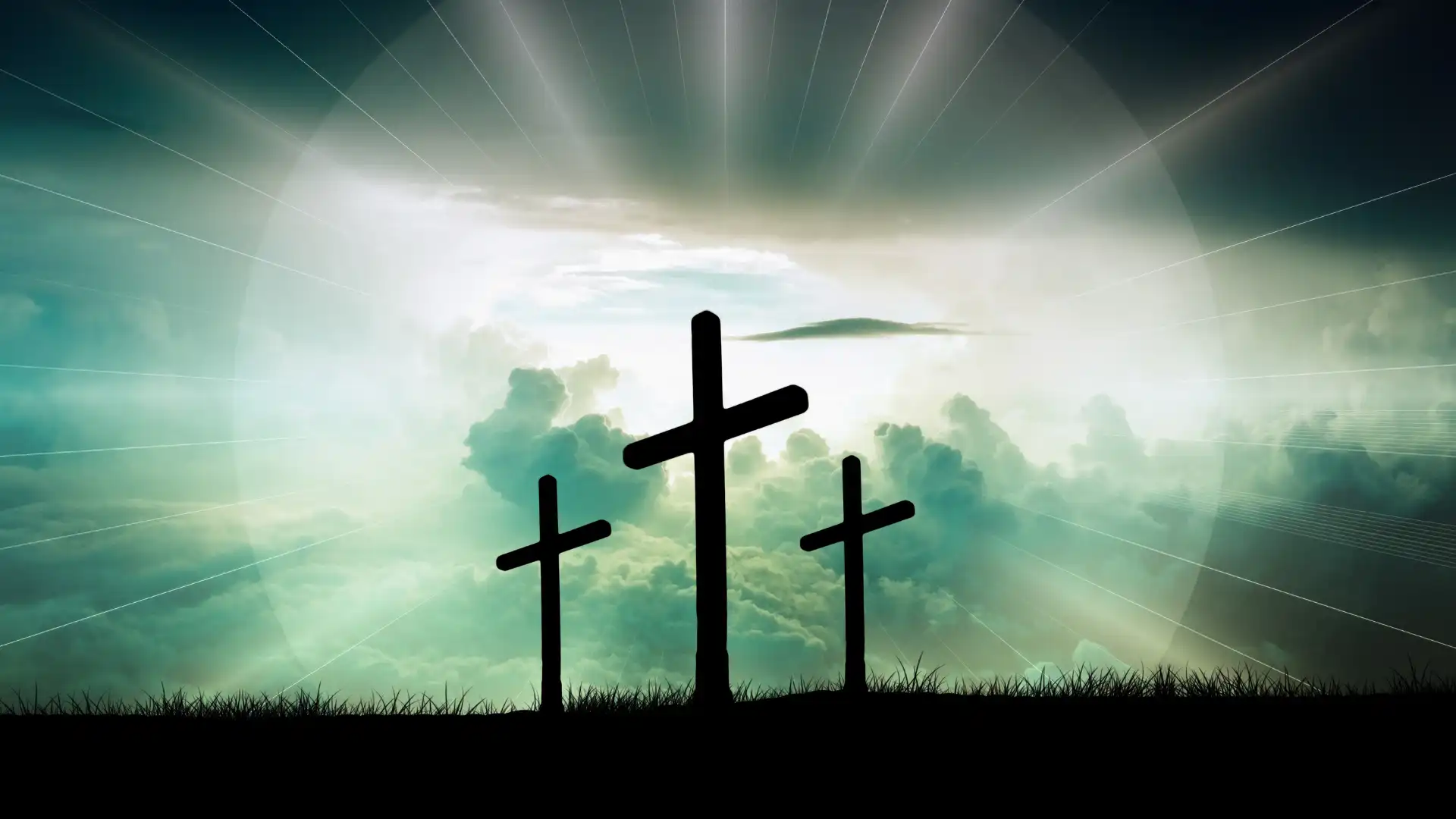The Book of Deuteronomy 34: Moses Dies – An In-Depth Study
The last chapter of the book of Deuteronomy, chapter 34, takes us to a moment of farewell, where we witness the end of Moses’ extraordinary journey. In this study, we will explore the depths of this chapter, reflecting on the meaning of Moses’ death and its relevance in our own lives.
Moses’ Farewell (Deuteronomy 34:1-5)
The Promised Place and the Vision of Moses
At the beginning of this chapter, we are transported to Mount Nebo, a special place for Moses. From there, he contemplates the promised land, a magnificent and exciting sight. The Lord, in his grace, shows Moses the land that he had longed to lead the children of Israel into reaching. However, a crucial detail is revealed:“And the Lord said unto him, This is the land which I sware unto Abraham, unto Isaac, and unto Jacob, saying, I will give it unto thy seed: I will show thee with thine eyes, but thou shalt not go thither.” (Deuteronomy 34:4).
Here, we realize the complexity of the situation. Moses, although he had guided the people until that moment, would not cross the Jordan to enter the promised land. God’s promise was being fulfilled, but in a way that highlights the holiness and sovereignty of the Lord. Moses, in his faithfulness and obedience, glimpses the blessing, but his role in the earthly journey has come to an end.
Why Didn’t Moses Enter the Promised Land?
The reason why Moses did not enter the Promised Land, only contemplating it before his death, is associated with a specific event that occurred during the Israelites’ journey in the desert, as reported in the book of Numbers, chapter 20.
The incident in question occurred in Meribá, where the people were thirsty and murmuring for water. God instructed Moses to speak to the rock so that it would give water to the people. However, instead of following divine instruction, Moses, moved by frustration and irritation at the people’s murmuring, struck the rock with his rod to make the water gush out.
This act of disobedience had serious spiritual and symbolic consequences. God considered that Moses did not sanctify His name before the eyes of the people, and as a result, Moses and his brother Aaron were punished, being told that they would not enter the land that God had promised to the children of Israel. The passage that highlights this is in Numbers 20:12 (NIV):
“And the Lord said unto Moses and unto Aaron, Because ye believed me not, to sanctify me before the children of Israel, therefore ye shall not bring this congregation into the land which I have given them.”
Numbers 20:12
This disobedience of Moses had serious implications for his personal destiny, despite all the years dedicated to leading the people of Israel. God, in His holiness, demanded obedience and honor, and Moses, by failing to faithfully represent God before the people, experienced the consequences of this failure. Although he had the opportunity to see the promised land of Mount Nebo, Moses was unable to enter it due to this specific episode of disobedience. This is a powerful lesson about the importance of obeying God’s commandments and sanctifying His name in our lives.
Israel’s Mourning (Deuteronomy 34:8)
The People Mourn the Loss of Moses
As we progress through the chapter 34, we find a time of mourning and sadness. “The children of Israel mourned Moses thirty days in the plains of Moab” (Deuteronomy 34:8). This mourning was not just a formality, but a deep expression of regret at the departure of an exceptional leader.
“But we do not want you, brothers, to be ignorant about those who sleep, so that you do not grieve like others who have no hope.”
1 Thessalonians 4:13 (ARA)
It’s important to note that grief is a natural part of the loss process. Moses was not just a leader, but an intercessor, a mediator between God and the people. His absence left a significant void in the lives of the Israelites, and they expressed their grief through prolonged mourning.
God’s Appointed Successor (Deuteronomy 34:9)
Joshua, the Lord’s Chosen
In the midst of grief, a light of hope appears in the figure of Joshua.“Joshua the son of Nun was filled with the spirit of wisdom, because Moses laid his hands on him; so the children of Israel listened to him and did as the Lord commanded Moses.”(Deuteronomy 34:9).
Succession is a vital part of God’s story with his people. Joshua is called to lead the Israelites in conquering the promised land, and his spiritual preparation is highlighted by the fact that Moses laid hands on him. This transition is not just a change in leadership, but a testimony to God’s continued faithfulness in guiding his people.
“The Lord said to Moses, ‘Take Joshua son of Nun, a man in whom is the Spirit, and lay your hand on him.'”
Numbers 27:18 (NIV)
We also see the account in which God encourages Joshua is a significant and inspiring episode recorded in the Scriptures, and is associated with the verse that contains the expression “be of good cheer”. We find this encouraging message in Joshua 1:9 (KJV):
“Have I not commanded you? Be strong and courageous; do not be afraid or dismayed, for the Lord your God is with you wherever you go.”
Joshua 1:9 (ARA)
This verse is part of the commission given by God to Joshua, who was about to lead the children of Israel in the conquest of the Promised Land, succeeding Moses. The expression “be of good cheer” is a call to Joshua to be strong, courageous and confident, as he would not be alone on his journey.
The strength of this message lies in the promise of God’s constant presence in Joshua’s life. The command not to fear or be amazed is followed by the reason for such confidence: “for the Lord your God is with you wherever you go.” This affirmation is not only an assurance of divine support, but also a declaration of God’s omnipresence and faithfulness.
Joshua’s encouragement by God comes at a crucial time of transition and responsibility. The task of leading the people in conquering lands inhabited by powerful nations would certainly be challenging. God, in encouraging Joshua, not only equips him emotionally but also reminds him of His covenant and sovereignty.
This episode teaches us valuable lessons about confidence and courage. Just as Joshua was encouraged to trust in God’s presence and power, we are reminded that in our own journeys, facing challenges and changes, we can be of good cheer. The promise of divine presence transcends circumstances and empowers us to move forward in faith.
This message of encouragement is not exclusive to Joshua. Throughout the Bible, we repeatedly find guidance not to fear, for the Lord is with us. In times of uncertainty, this promise remains a source of comfort and inspiration for us all. May we, like Joshua, face our challenges with good cheer, trusting in the constant presence of the Lord in our lives.
The Legacy of Moses (Deuteronomy 34:10-12)
There Never Was a Similar Prophet
At the close of the book of Deuteronomy, we are confronted with an extraordinary statement about Moses:“There never arose again in Israel a prophet like Moses, whom the Lord had known face to face.” (Deuteronomy 34:10).
The uniqueness of Moses’ relationship with God is emphasized. He was not just a leader; he was an intimate intercessor who spoke face to face with the Lord. This legacy of closeness to God is a challenge and an inspiration for all of us. Moses not only guided the people, but also brought them closer to the Divine in a unique way.
“The Lord spoke to Moses face to face, as one speaks to his friend. Afterwards, Moses returned to the camp, but the young helper, Joshua, son of Nun, did not leave the tent.”
Exodus 33:11 (NIV)
Conclusion: Lessons from Moses’ Journey (Deuteronomy 34:10-12)
A Call to Intimacy and Fidelity
At the end of this study, it is vital that we reflect on the lessons we can extract from Moses’ journey. His commitment to God, his role as an intercessor and his exemplary leadership are sources of inspiration for us all.
May we seek the face of the Lord with the same passion and desire that Moses demonstrated. May our journey be marked by fidelity, closeness to God and a commitment to guiding others on the journey of faith. Just as God was faithful to Moses and the people of Israel, we can trust His faithfulness in our own lives.
“But if you seek the Lord your God from there, you will find him, if you seek him with all your heart and with all your soul.”
Deuteronomy 4:29 (ARA)
In this study, we explore the final chapter of Deuteronomy, witnessing Moses’ farewell and the significant implications of this event. May we apply these truths in our lives, seeking the face of God, accepting transitions with faith and leaving a legacy of faithfulness for future generations. May the story of Moses inspire us to live lives that reflect the glory of the Lord.







